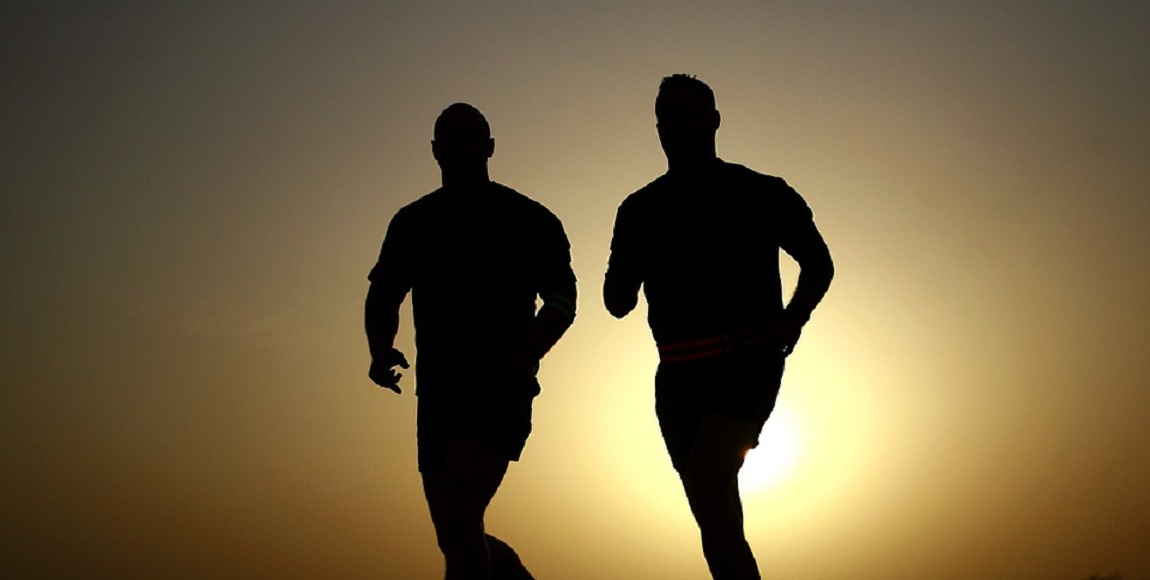From the middle of May until the middle of June, Muslims around the world will be abstaining from eating and drinking from sunrise and sunset for the month of Ramadan. While being a month of abstinence, it is also a month where many indulge in fried eats and sugary foods to compensate for the days of not eating. However, it is very important to have a balanced diet during the month and even to exercise. The Daily Vox team spoke to Fayzel Ally, a triathlete about balancing fasting and exercise.
Tell me about your training programme in Ramadan.
I won’t say I train while I’m fasting. What I will say is that it’s my recovery time if I may call it that. I do lots of exercise that is based more on stretching. And if I do an exercise it will be more aerobic instead of anaerobic so the whole idea is to keep my heart rate on average or slightly below. It’s the best time to recover and give the muscles a break from all the pounding throughout the year. I’ll do most of my sessions after Taraweeh (special evening prayer) so I’ll do either a 5-10 km run and then focus more on stretching. When I break fast I try to stay away from carbohydrates. I eat stuff that has a little bit more fat in it because I’m going to burn it off in that 5km or so. Carbs take too long and unfortunately aid in us gaining weight but Ramadan is a very important time especially for anyone who is training because you are forced to tone down your training.
What do you enjoy about sports?
So the reason I do sport is because it helps me overcome my personal adversities, helps me think and clear my mind, and it also helps to appreciate the gift that has been given to us by our Creator. We take everything for advantage and some people can’t do what we can do and yet we chose not to take advantage of this gift that has been given to us. So that’s why I do sports.
What training do you do out of Ramadan?
Out of Ramadan, it’s very different but it depends on what race I’m training for. So I would start with getting a nice strong foundation. The first phase is building a solid core, doing core exercises. Longer slower runs and swims until I get nice and strong. Therefore it’s more high-intensity exercises trying to push to the maximum heart rate so that the body can get used to working in that uncomfortable condition. I get up at 03:30 for a ride or cycle. After work, I use the afternoon to recover with an easy swim by going to the gym for stretching. Depends on where I am in my programme. Each month requires different training that lends to the goal of the race.
And in Ramadan?
I work out [after sehri-morning meal]. We’ll do a little stretching and go for a 1-2 km walk with my wife before getting the kids to school. But everything is done at night. The problem is when we break fast and we finish our prayer, we just eat ourselves to death and go to sleep and that’s where the problem comes in. So I try to do a minimum worst case 30 minutes activity. If I don’t feel like going out and doing training, I’ll do my own CrossFit at home just to get the heart rate up but not too much again. The minimum workout is 30 minutes after Taraweeh. If I get a chance during the day, I try and relax the muscles. If I’m going for a run it will definitely be aerobic. Maximum I’ll do during the day is 5km, no more than that.
What do you eat during Ramadan?
My sehri is pretty much like everyone else. I would have FutureLife: the one that has protein in it and I’ll have a glass of water to recover from the previous night – helps the muscle grow – and a banana. When I break fast, I try to have something high in fat. Also a lot of fruit which helps with digestion. It gives you all the nutrients that your body needs. Kiwi is my number one thing to eat when I break my fast. Kiwi is brilliant for you. It digests so quickly. Especially in winter, I increase my uptake of kiwi fruit together with oranges, and not forgetting kajoor. If you have sweet tooth, kajoor is the best. I replenish first with water before I touch any of the milkshakes or anything. I try my best to stay away from anything with sugar. Stay away from oils or anything with a lot of salt in it.
What advice would you give people about exercising?
When you are fasting, you are doing your body so much good you can’t even imagine. You giving your body a break from all the working through eating and all the activity you do when you’re not fasting. So when you break fast, and your body has been starving for so long, all that fats and horrible oily food that you’re taking in, your body is thinking it’s not going to get food for a very long time and that aids in your becoming unhealthy. If you continue you this for more than 7-8 days, you’ll become someone sedentary who hasn’t exercised. And it’s not something anybody wants to be in because it will take you another three weeks after Ramadan to get you back into a routine.
So if you watch what you eat and eat a little bit and go for a 2km walk and have lots of water, whatever activity you can do, make yourself active. You can even do exercise from your own home. By not exercising in the month of Ramadan, you’re doing so much more harm to something that is already good.
Interview edited for clarity and brevity









